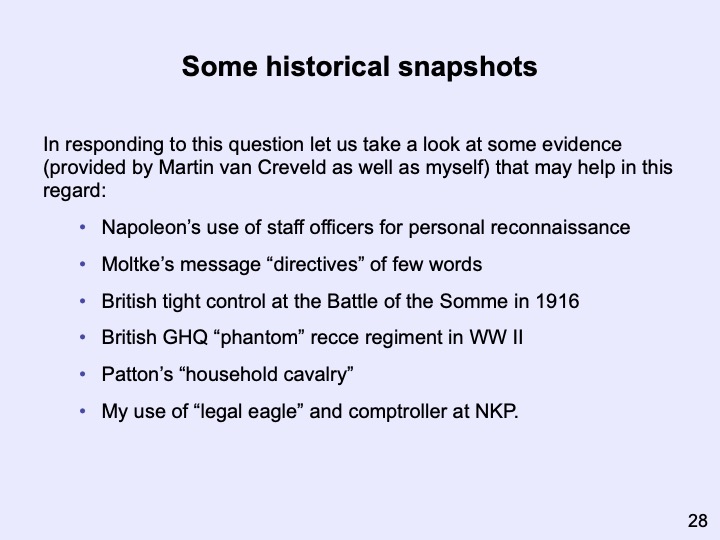Fascinating new column by Martin van Creveld: ”Konseptsia.”
As he defines it: “a Hebrew word we Israelis often use. It means, roughly, a system of interlocking ideas (sometimes known, in English, as “parameters”) that, taken together, form a framework for thought.”
Readers of this blog will immediately shout “orientation!” and as far as I can tell, you’d be right. I’ll leave it to Martin to illuminate any differences between the concepts.
Details aside, however, Martin’s column is all about locked konseptsia, and he gives three examples: The 1967 War, the 1973 War and the present situation in the Gaza Strip. For each of these, he shows how locked orientation led to disastrous consequences (subsequent heroic efforts to overcome the resulting debacles not withstanding).
So, for example, concerning the events of mid-1967:
As Israel watched, the konseptsia, which said that another war any time soon was highly unlikely, collapsed, triggering a crisis in the government and near panic among the population. In the end it was only by means of a full-scale Israeli offensive against its neighbors that the situation was saved.
I strongly recommend you read the entire post. Martin van Creveld is one of the world’s most astute military historians and was a significant influence on John Boyd. Here are a couple of charts from Organic Design for Command and Control (all of Boyd’s briefings are available for free download from our Articles page)
and
This notion, of a “directed telescope,” by the way, is very deep and will repay a lot of pondering. I would go so far as to claim (Don Vandergriff — feel free to jump in here) that it is required for mission command to work. To see why this might be, recall that Boyd suggested substituting “Leadership and Appreciation” for “Command and Control,” and here’s his definition of “appreciation”:
Appreciation, as part of leadership, must provide assessment of what is being done in a clear unambiguous way. In this sense, appreciation must not interact nor interfere with system but must discern (not shape) the character/nature of what is being done or about to be done;
Organic Design 34
John Boyd knew Martin van Creveld and recommended his works highly. Perhaps his favorite was Fighting Power (1982) (Expensive, true, but in my view essential to understanding military conflict, including the events of the present day).


